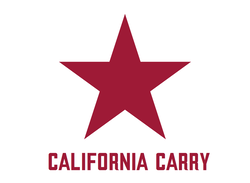
The interstate travel protection statutes are intended to allow people to pass peacefully and safely through jurisdictions with varying firearm laws. In theory, this works more as a defense than as a bar to arrest in anti-gun states. This only applies to vehicular travel, not air travel. Local laws still apply if you take out the firearms or make unnecessary deviations on your trip. This does not apply to firearm accessories (magazines), only the firearm. This section allows you to travel through restrictive jurisdictions with locally prohibited items, not to bring/use them in the restrictive location. For example, an Oregonian may drive through California to Arizona with a registered short-barrel rifle and a suppressor legally.
Firearms Owners’ Protection Act (FOPA)
18 USC § 926A. Notwithstanding any other provision of any law or any rule or regulation of a State or any political subdivision thereof, any person who is not otherwise prohibited by this chapter from transporting, shipping, or receiving a firearm shall be entitled to transport a firearm for any lawful purpose from any place where he may lawfully possess and carry such firearm to any other place where he may lawfully possess and carry such firearm if, during such transportation the firearm is unloaded, and neither the firearm nor any ammunition being transported is readily accessible or is directly accessible from the passenger compartment of such transporting vehicle: Provided, That in the case of a vehicle without a compartment separate from the driver’s compartment the firearm or ammunition shall be contained in a locked container other than the glove compartment or console.
Definition of “firearm”
18 USC § 921(a)(3). The term “firearm” means (A) any weapon (including a starter gun) which will or is designed to or may readily be converted to expel a projectile by the action of an explosive; (B) the frame or receiver of any such weapon; (C) any firearm muffler or firearm silencer; or (D) any destructive device. Such term does not include an antique firearm.
Requirements
Note: The glove box or console (a “utility compartment” in California gun control parlance) does not count as a locked container.
Note: This does not apply to air travel.
You must be traveling between places where you may legally possess and carry the firearm. The construction of the emphasized section is concerning but does not appear to have been interpreted by the courts.
As far as point to point, the statute is silent on whether this includes necessary stops and diversions, like getting gas, eating, using the toilet, or sleeping. Tourist diversions would not be permitted, nor would visiting relatives.
California law permits you to transport firearms between free states and a place where you can legally possess a firearm (a second home, your relative’s home, or temporary residences like a hotel room or a campsite). However, neither FOPA or state law allows you to bring a California-prohibited weapon into the state unless you are passing through (for instance driving from Reno, NV, to Oregon or Washington) or from Yuma, AZ, to Las Vegas, NV.
Theoretically, if your firearm is transported in this manner, you are immune from California laws prohibiting certain types of firearms like “assault weapons.” In other states, you would be exempted from restrictive laws that prohibit innocent passage. Note this does not exempt “high capacity” magazines or other prohibited accessories, but it does cover suppressors/silencers.
Some state and local law enforcement and prosecutors may treat this provision as an affirmative defense, meaning your may be arrested and charged with a crime. It would be up to you to raise this section as a defense in court to have the charges thrown out.
Most likely scenarios
You drive through the state as directly as possible with your firearm properly secured, stopping only to eat, get gas, and go to the bathroom because California is a huge state. You cross the state line with nothing bad happening because you obeyed all traffic laws and did nothing to call CHP attention to yourself.
You get pulled over or into a vehicle accident. Somehow the officer/deputy finds out about your weapon. You explain you are driving directly through the state. The officer runs you, finds nothing amiss, and believes your story. Using their discretion, they send you on your way.
You run into a stupid, overzealous officer/deputy who chooses to arrest you. You are released after booking and once you retrieve your car, continue on your way. Your attorney gets the charges dismissed because in your travels from Arizona to California, it was necessary for you to stop to (relieve yourself/get gas/eat/sleep) and you didn’t stop for any other reason than that.
- The firearm must be unloaded; and,
- If your vehicle is a vehicle with a trunk, the firearm and ammunition must be in the trunk; or,
- If your vehicle does not have a trunk (i.e. a pickup, SUV, or hatchback) the firearm must be in a locked container; and,
- You are traveling between places where you may legally possess and carry the firearm.
Note: The glove box or console (a “utility compartment” in California gun control parlance) does not count as a locked container.
Note: This does not apply to air travel.
You must be traveling between places where you may legally possess and carry the firearm. The construction of the emphasized section is concerning but does not appear to have been interpreted by the courts.
As far as point to point, the statute is silent on whether this includes necessary stops and diversions, like getting gas, eating, using the toilet, or sleeping. Tourist diversions would not be permitted, nor would visiting relatives.
California law permits you to transport firearms between free states and a place where you can legally possess a firearm (a second home, your relative’s home, or temporary residences like a hotel room or a campsite). However, neither FOPA or state law allows you to bring a California-prohibited weapon into the state unless you are passing through (for instance driving from Reno, NV, to Oregon or Washington) or from Yuma, AZ, to Las Vegas, NV.
Theoretically, if your firearm is transported in this manner, you are immune from California laws prohibiting certain types of firearms like “assault weapons.” In other states, you would be exempted from restrictive laws that prohibit innocent passage. Note this does not exempt “high capacity” magazines or other prohibited accessories, but it does cover suppressors/silencers.
Some state and local law enforcement and prosecutors may treat this provision as an affirmative defense, meaning your may be arrested and charged with a crime. It would be up to you to raise this section as a defense in court to have the charges thrown out.
Most likely scenarios
You drive through the state as directly as possible with your firearm properly secured, stopping only to eat, get gas, and go to the bathroom because California is a huge state. You cross the state line with nothing bad happening because you obeyed all traffic laws and did nothing to call CHP attention to yourself.
You get pulled over or into a vehicle accident. Somehow the officer/deputy finds out about your weapon. You explain you are driving directly through the state. The officer runs you, finds nothing amiss, and believes your story. Using their discretion, they send you on your way.
You run into a stupid, overzealous officer/deputy who chooses to arrest you. You are released after booking and once you retrieve your car, continue on your way. Your attorney gets the charges dismissed because in your travels from Arizona to California, it was necessary for you to stop to (relieve yourself/get gas/eat/sleep) and you didn’t stop for any other reason than that.
